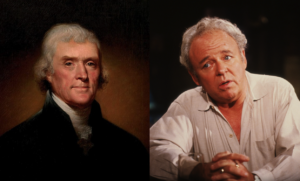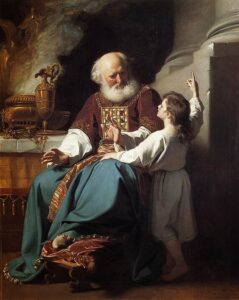 “You are the light of the world. … [L]et your light shine before others, so that they may see your good works and give glory to your Father in heaven.”[1]
“You are the light of the world. … [L]et your light shine before others, so that they may see your good works and give glory to your Father in heaven.”[1]
Last week, I read this story on Facebook:
I own a small bakery. Business has been slow. Rent is up. I was thinking about closing. Last Friday, a teenager came in. He looked nervous. He counted out change for a cookie. He was short 50 cents. “It’s okay,” I said. “Take it.” He ate it at a table, looking at his math homework. I walked over. “Quadratic equations?” He nodded. “I don’t get it.” I sat down and helped him for 20 minutes. He got it. He left smiling. The next day, he came back with two friends. They bought cookies. The day after that, five kids came. Apparently, he told the school, “The lady at the bakery helps with homework.” Now, my bakery is the after-school hang-out spot. It’s loud. It’s messy. There are backpacks everywhere, Yesterday, I found a note in the tip jar. It was wrapped around a $20 bill. “Thanks for helping my son pass math. A Mom.” I’m not closing the bakery. I think I finally found my purpose. It’s not cookies. It’s community.
This baker is a light shining before others. I think that both Jesus and the prophet Isaiah would have approved of this baker.
 In any event, I know that Mother Lisa has been over all of that with them, so this sermon is not for them. It’s for you, their family and friends; it’s about their marriage, but it’s for you.
In any event, I know that Mother Lisa has been over all of that with them, so this sermon is not for them. It’s for you, their family and friends; it’s about their marriage, but it’s for you. Do you all know what a tort is? Tort … T-O-R-T … no E on the end; I’m not talking about those wonderful little German or Austrian pastries. A tort is a civil wrong that causes harm to another person, resulting in legal liability for the person who commits the wrong. You leave a puddle of milk on the floor of your grocery store knowing it’s there, then someone slips in it and injures themselves: you have committed a tort. You speed through a stop sign, collide with another car, and injure the driver: you’ve not only broken the law, you’ve committed a tort.
Do you all know what a tort is? Tort … T-O-R-T … no E on the end; I’m not talking about those wonderful little German or Austrian pastries. A tort is a civil wrong that causes harm to another person, resulting in legal liability for the person who commits the wrong. You leave a puddle of milk on the floor of your grocery store knowing it’s there, then someone slips in it and injures themselves: you have committed a tort. You speed through a stop sign, collide with another car, and injure the driver: you’ve not only broken the law, you’ve committed a tort. Y’all know who John Wesley is, or was, I’m sure. The Anglican priest who founded Methodism? My paternal grandparents were Methodists and they really tried to make me into one but, for some reason, it didn’t stick. To this day when Evelyn and I visit a Methodist church, I will often turn to her as we are leaving and say, “There’s a reason I’m not a Methodist.”
Y’all know who John Wesley is, or was, I’m sure. The Anglican priest who founded Methodism? My paternal grandparents were Methodists and they really tried to make me into one but, for some reason, it didn’t stick. To this day when Evelyn and I visit a Methodist church, I will often turn to her as we are leaving and say, “There’s a reason I’m not a Methodist.”  One of the things I try to do when I read the stories of Jesus in the Gospels, when he uses an odd or striking metaphor like “I will make you fishers of people”
One of the things I try to do when I read the stories of Jesus in the Gospels, when he uses an odd or striking metaphor like “I will make you fishers of people” “They’re eating the dogs, they’re eating the cats.”
“They’re eating the dogs, they’re eating the cats.” We have had more than enough of contempt,
We have had more than enough of contempt, Here we are at the end of the first period of what the church calls “ordinary time” during this liturgical year, the season of Sundays after the Feast of the Epiphany during which we have heard many gospel stories which reveal or manifest (the meaning of epiphany) something about Jesus. On this Sunday, the Sunday before Lent starts on Ash Wednesday, we always hear some version of the story of Jesus’ Transfiguration, a story so important that it is told in the three Synoptic Gospels, alluded to in John’s Gospel, and mentioned in the Second Letter of Peter.
Here we are at the end of the first period of what the church calls “ordinary time” during this liturgical year, the season of Sundays after the Feast of the Epiphany during which we have heard many gospel stories which reveal or manifest (the meaning of epiphany) something about Jesus. On this Sunday, the Sunday before Lent starts on Ash Wednesday, we always hear some version of the story of Jesus’ Transfiguration, a story so important that it is told in the three Synoptic Gospels, alluded to in John’s Gospel, and mentioned in the Second Letter of Peter. In the Episcopal Church, when we baptize a person, we pray that God will “give them an inquiring and discerning heart, the courage to will, and to persevere, a spirit to know, and love, [God], and the gift of joy, and wonder in all [God’s] works.”
In the Episcopal Church, when we baptize a person, we pray that God will “give them an inquiring and discerning heart, the courage to will, and to persevere, a spirit to know, and love, [God], and the gift of joy, and wonder in all [God’s] works.”

